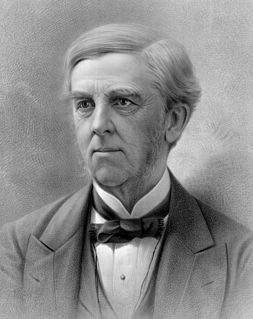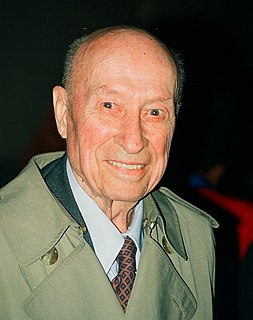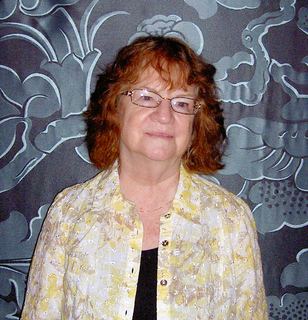A Quote by Oliver Wendell Holmes, Sr.
Fame usually comes to those who are thinking about something else - very rarely to those who say to themselves, 'Go to, now, let us be a celebrated individual!'.
Quote Topics
Related Quotes
I won't say he [Shakespeare] 'invented' us, because journalists perpetually misunderstand me on that. I'll put it more simply: he contains us. Our ways of thinking and feeling-about ourselves, those we love, those we hate, those we realize are hopelessly 'other' to us-are more shaped by Shakespeare than they are by the experience of our own lives.
If you're worried about messaging, people will just move to something else. You know if you legislate against Facebook and Apple and Google and whatever else in the US, they'll just use something else. So are we really safer then? I would say no. I would say we're less safe, because now we've opened up all of the infrastructure for people to go wacko at.
Now what is it that moves our very hearts and sickens us so much at cruelty shown to poor brutes?.. They have done us no harm and they have no power of resistance... There is something so very dreadful, so Satanic, in tormenting those who have never harmed us, who cannot defend themselves, who are utterly in our power.
All we can do as women is make the best decisions for us. And that includes everything from how you look to how you dress to whether you choose to stay at home or work when you have kids. All those decisions are so personal, and we have to start with finding what brings us joy and what brings us our own individual confidence. And if we're feeling good with those choices, then it makes what everybody else has to say less important.
The great people of the earth today are the people who pray. I do not mean those who talk about prayer, nor those who say they believe in prayer, nor yet those who can explain about prayer; but I mean these people who take time and pray. They have not time. It must be taken from something else. This something else is important, very important, and pressing, but still less important and less pressing than prayer. There are people that put prayer first, and group the other items in life's schedule around and after prayer.
The 'phenomenal concept' issue is rather different, I think. Here the question is whether there are concepts of experiences that are made available to subjects solely in virtue of their having had those experiences themselves. Is there a way of thinking about seeing something red, say, that you get from having had those experiences, and so isn't available to a blind person?
It does say something about a society when those who sue physicians and hospitals make as much or more money than those who heal disease. It says something about a society when it glorifies and rewards those who litigate while it demonizes and punishes those who produce the drugs and devices that keep it citizens alive and well.
It was about the preciousness of that, and how they viewed those birds as art, as something valuable. I didn't care one way or another back then, but now, thinking about my grandparents - who are still alive but getting older - I see the birds as sort of time capsules. Now I go home during the holidays and they hold a lot of weight in terms of nostalgia and memory. Now they mean everything.
Lena Dunham or Miranda July, those people are sort of thinking about their work in a slightly different way than I do, where their whole body is a seed of what they're creating. I can't imagine watching Miranda's movies with anybody else playing her role, she's so integral. But for me, it feels more like every story is really individual. If I thought of something else, or thought it should be my body representing it, I'd fold my body into it. But most of the time I'm writing to get something out of my body.






































